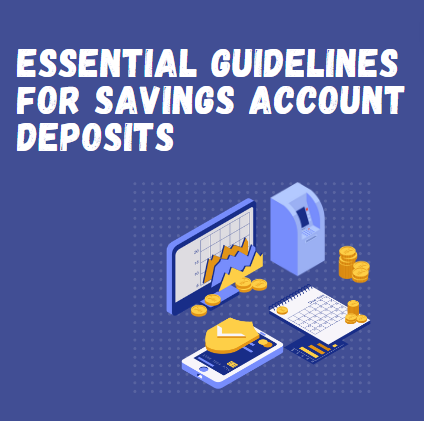Accumulating money in a savings account is a common habit for many folks. However, you should be informed of some vital policies to help prevent problems with the Income Tax Department. Understanding these guidelines helps an employee manage his or her money more appropriately and within the bounds of legality.
The Limit for Deposits
The Reserve Bank of India has restricted the annual deposits in your savings account so as not to raise suspicions. If you go over the established limit, your bank will report this to the Income Tax Department. That doesn’t mean that you will be immediately taxed, but you would probably be required to explain the source of the excess amount.
What if You Go Over the Limit?
If, in a year, your deposits exceed this limit, you may well get a notice from the Income Tax Department seeking information as to the source of your deposits. You will be right if you can justify this with a plausible explanation. If you are unable to explain from where the money came, you are liable for penalties. For instance, you may be made to pay a huge tax on the unexplained amount with surcharges added to it. To avoid facing these charges, it is wise to monitor your income and any large deposits.
Daily Cash Transaction Limits
Apart from annual limits, there are restrictions on daily transactions in cash. On any single day, you cannot deposit or withdraw a particular amount in cash. This limit will apply to all cases of deposit, withdrawal, and transfer of money between accounts in pure cash. If you cross this limit on any single day, then additional money will be liable to attract a severe penalty.
Deposits – Requirements for PAN Card
There are certain specifications about using your PAN card for cash deposits, too. For lower amounts, you do not have to give in your PAN card. For bigger amounts, you need to attach your PAN details. Thus, the government keeps a close watch on huge amounts of cash transfers and money laundering.
Key Points to Remember
In one financial year, you can safely deposit a certain amount of money in your savings account without raising suspicions. If this limit is exceeded with your deposits, you’d better be prepared to explain where the money came from. Know daily limits on cash transactions to avoid any kind of penalty. Bigger deposits will be required to be disclosed with your PAN card. These simple guidelines will keep your transactions well within legal limits and also avoid complications with the Income Tax Department.



